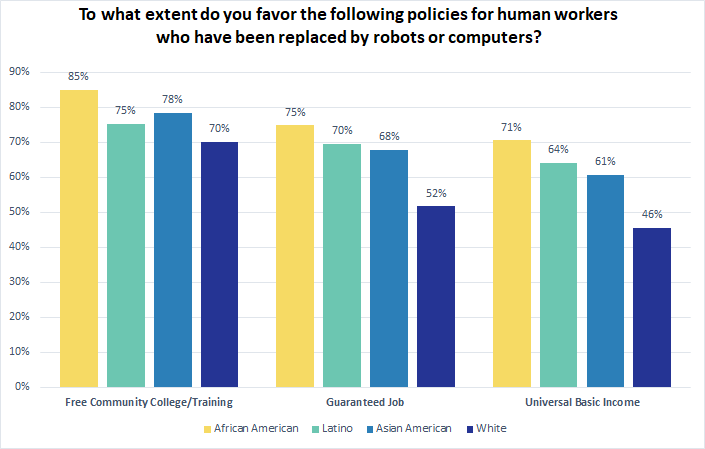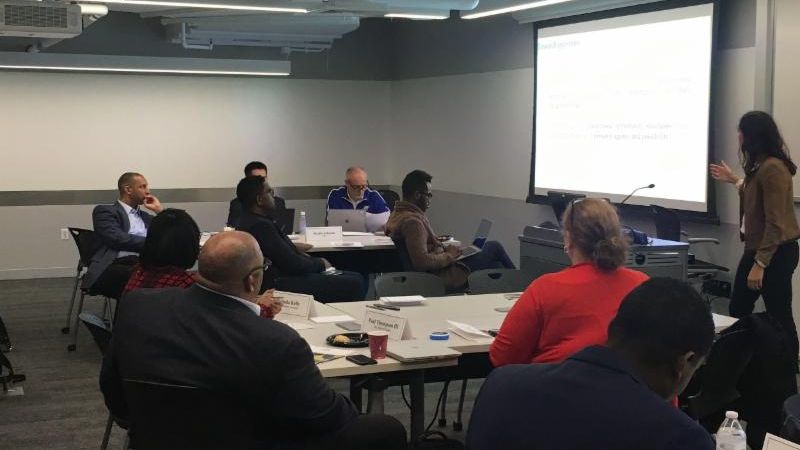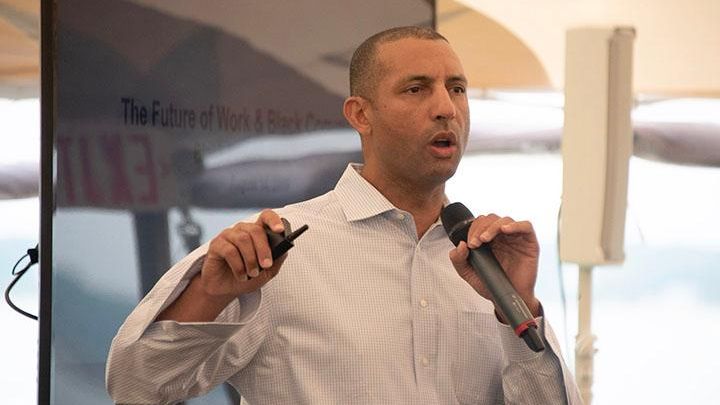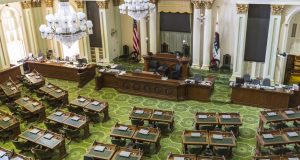The Joint Center released groundbreaking survey data on the future of work and race, hosted a future of work convening in Chicago, and continued our monthly jobs analysis. Details below.
Economic Studies: Future of Work

On July 24, the Joint Center releasedRacial Differences on the Future of Work: A Survey of the American Workforce. The report highlights the findings of a Joint Center survey of over 2,000 Black, Latino, White, and Asian Americans on their perspectives on the changing economy. Key findings include:
- People of color have a significant interest in education and training. Asian Americans, African Americans, and Latinos were all more likely than Whites to be interested in obtaining education or training from all the provided options, including an in-person college degree program, online college, community college, a trade union, and a GED.
- All four groups cited financial constraints as the biggest barrier to obtaining additional training. The least cited barrier was feeling personally incapable of acquiring new skills.
- A significant majority of Americans support free education or training as a response to job displacement (see graph above).
- With regard to the most impactful steps schools can take to prepare children for the future economy, African Americans, Latinos, and Asian Americans were much more likely than Whites to prioritize teaching computer programming.
?Read the report here.
The report was covered in Bloomberg,Communications of the ACM, Diverse: Issues in Higher Education,EdWeek,GW Hatchet,Inside Higher Ed, Political Hispanic, and #RolandMartinUnfiltered.
Joint Center President Spencer Overton wrote an op-ed for The Hill calling for 2020 Democratic presidential candidates to focus on the future of work priorities identified by people of color in the survey.
Spencer also presented the Joint Center’s findings from the report during a panel at the 2019 National Urban League Annual Conference in Indianapolis, IN.

The Joint Center held a future of work convening in Chicago in partnership with Comcast-NBCUniversal Foundation.The event brought together practitioners, community leaders, workforce groups, the business community, and policy students from the University of Chicago to discuss the implications of the changing nature of work on African Americans in Chicago. More details here.
Taking Action for Low-Income Workers: Spencer and Joint Center Workforce Policy Director Harin Contractor partnered with the National Skills Coalition to co-author an essay in a new compendium entitled Taking Action: Positioning Low-Income Workers to Succeed in a Changing Economy. The publication offers strategies to address disparities and equip low-income individuals with the education and skills needed to succeed in the changing workforce, and was funded by Annie E. Casey Foundation and The Joyce Foundation. Read it here.
Joint Center Economic Policy Director Jessica Fulton participated in a convening focused on the unique challenges women will face in the future of work. Harin attended the Center for American Progress’s Workforce Equity Conversation Series, an invite-only workshop with over 20 representatives from think tanks and foundations.
The Future of Work & the Black Rural South: Spencer shared findings and obtained feedback on the Joint Center’s research on the future of work and the Black Rural South at a USDA session at the Congressional Black Caucus Institute’s Mississippi Policy Conference in Tunica, MS. He also shared and obtained feedback on the research as a keynote speaker to over 25 local elected and emerging leaders at the One Voice Mississippi Black Leadership Institute. For a 4-page summary of the research (including graphs), click here.

At the Black Economic Alliance’s Future of Work session on Martha’s Vineyard, Spencer was the opening speaker and provided an overview of the impact of automation, upskilling, and geography on Black workers. Later that same week, Spencer spoke at the Black Economic Forum and discussed steps Black private sector executives should take to help Black workers transition to better jobs in the new economy.
Jobs Analysis
Employment Situation Report: Harin hosted analysis on the Bureau of Labor Statistics monthly jobs report. Our latest chats included:
May 2019: Howard University’s Assistant Professor of Economics Jevay Grooms and Georgia Budget and Policy Institute’s Senior Policy Analyst Alex Camardelle, and Harin discussed that while Black unemployment continues to decrease, many Black workers continue to lack access to health benefits.
June 2019: CLASP Policy Analyst Parker Gilkesson and Alabama A&M University Visiting Professor Dr. Kristen E. Broady, and Harin discussed the importance of SNAP benefits.
July 2019: Harin conducted a solo-session due to the July 4 holiday. He shared that education plays a stronger role for African Americans’ attachment to the labor force than for Whites. However, African Americans have higher unemployment rates at every educational attainment level compared to their White counterparts.
August 2019: Omidyar Network Senior Manager of Reimagining Capitalism Joelle Gamble, Groundwork Collaborative Policy & Research Director Janelle Jones, and Harin discussed how African Americans are underrepresented in industries that tend to pay higher than average wages.
Find their conversations here.
In Case You Missed It
Comcast-NBCUniversal announced an expansion of its Internet Essentials program, which will provide high-speed internet to qualified households at an affordable rate. The step is significant because access to high-speed broadband is critical for the future of work in Black communities (e.g., work, education, and skill building), but currently almost 28 percent of African Americans lack access to broadband at home.
The African American Mayors Association released a white paper on the future of work’s effect on Black and Latino workers in three cities: Gary, IN, Columbia, SC, and Long Beach, CA. Read it here.
McKinsey Global Institute released a report on the future of work in America including analysis on its impact on places, people, and companies. The report finds that 23.1 percent of Black workers could be displaced by 2030 (4.6 million workers). Learn more about McKinsey’s take on Black worker displacement on pages 60-64 here.
Marcus Casey and Sarah Nzau of the Brookings Institution wrote about how artificial intelligence will disrupt the future of work, and how automation will affect the middle class.
Opportunity@Work CEO and Co-Founder Byron Auguste wrote an op-ed offering guidance on how to build a lifelong learning strategy in the wake of automation. Read it here.
 Westside Story Newspaper – Online The News of The Empire – Sharing the Quest for Excellence
Westside Story Newspaper – Online The News of The Empire – Sharing the Quest for Excellence




